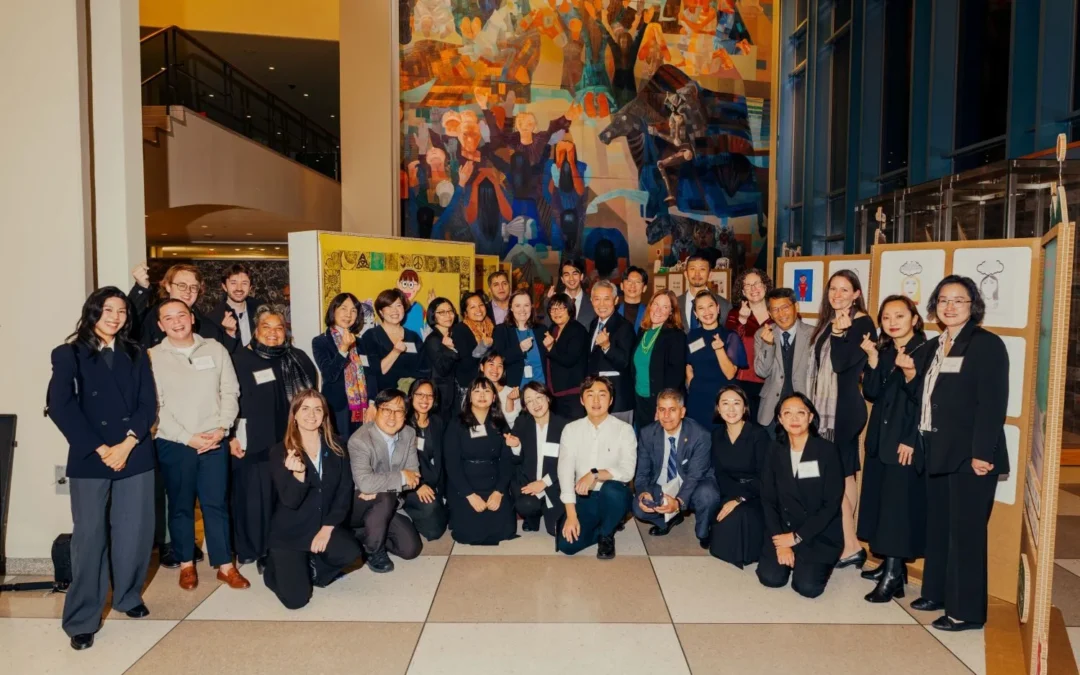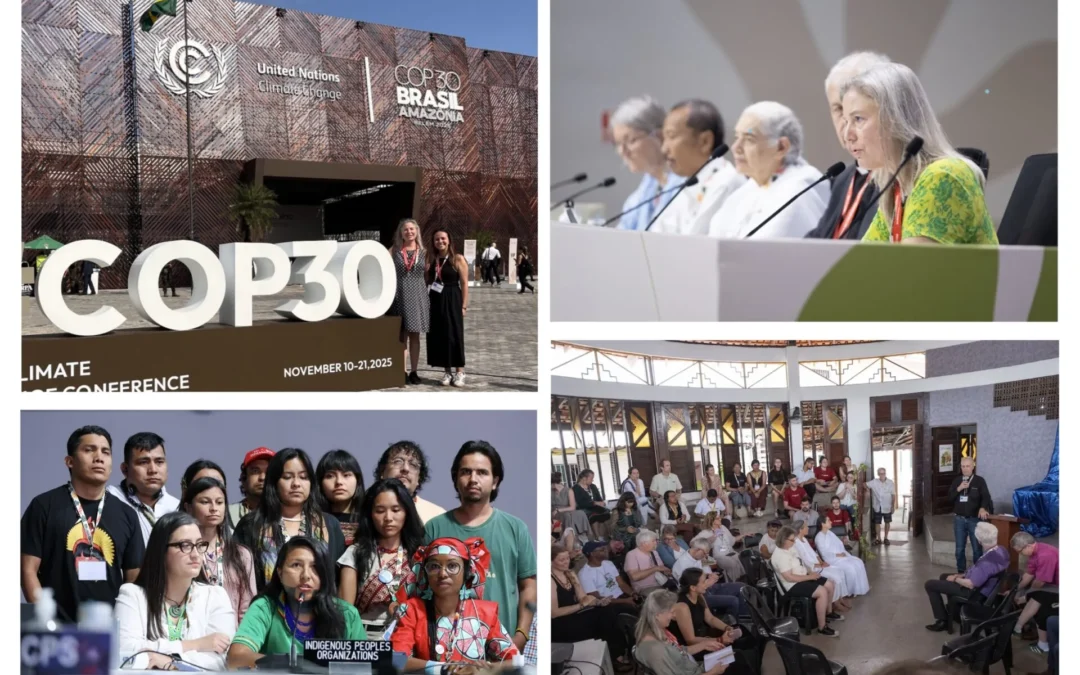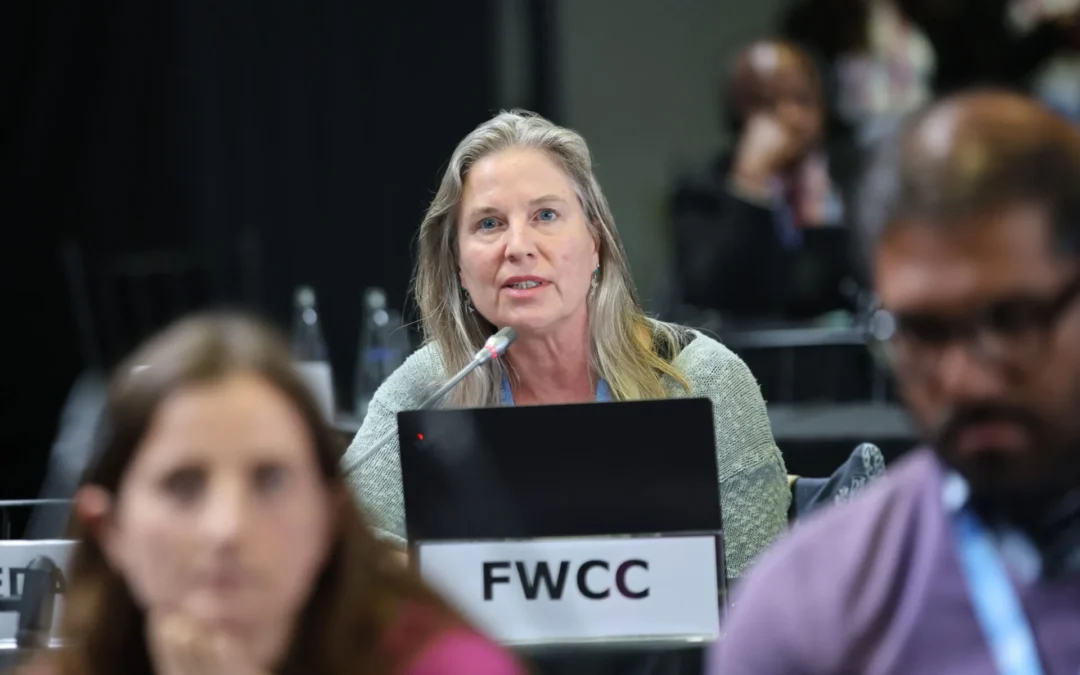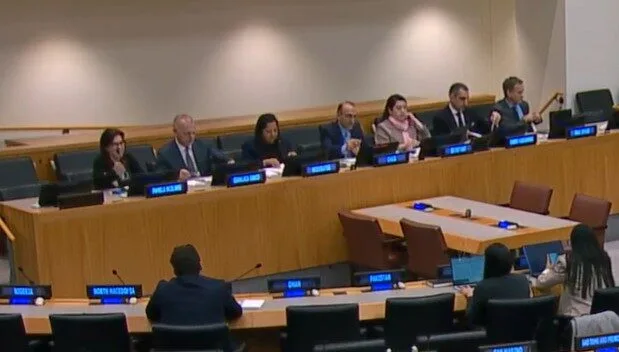QUNO, in partnership with the UN Peacebuilding Support Office (PBSO), co-hosted the roundtable, Peacebuilding contributions to crisis and climate change response: Learning from practice, at this year's Stockholm Forum on Peace and Development. The Forum is an annual gathering held by the Stockholm International Peace Research Institute (SIPRI) to promote opportunities for cross-cutting dialogue and learning between humanitarian, development, and peacebuilding actors internationally. This year’s theme was “From a Human Security Crisis Towards an Environment of Peace.”
Megan Schmidt, one of QUNO’s UN Representatives, moderated the roundtable which provided space for discussion with colleagues working at the forefront of peacebuilding, climate change, and development. The roundtable began with reflections from our discussants, Patrick McCarthy, the Peace and Development Advisor in The Gambia’s UN Resident Coordinator’s office, Coumba Sow, who leads FAO’s Resilience Team for West Africa and the Sahel, Natacha Kunama, Crisis Prevention and Recovery Advisory in UNDP’s Mali office, and Diane Sheinberg, a Peacebuilding Officer with the Peacebuilding Fund (PBF). Together, they brought forward learning from their experience across West and Central Africa, drawing from the programming and analysis carried out by their offices.
As Megan noted in her introduction, the topic and context that colleagues work in bring three key words to mind: complexity; cross border; and climate. The discussants lead and support programming in countries and regions that are complex, where emergencies and conflict do not stop at the border, and where climate change and environmental degradation is extreme. The work also has another connection – the use of peacebuilding tools to address these challenges, including through programs supported by the PBF. Speakers shared how peacebuilding approaches such as undertaking conflict analyses that include climate, gender and youth considerations; partnering with communities to develop and carry out programming; and understanding local capacities for prevention and resilience helped shape their climate and peacebuilding activities.
Patrick spoke about his previous experience in Chad, where he led an innovative conflict analysis process for the UN office. This process allowed for a better understanding of the context, leading to more impactful and sustainable programming. Coumba provided a frank overview of the dire situation in the Sahel, which is experiencing the economic impact from the war in Ukraine, food insecurity, and displacement, among other challenges. She shared how the state of the region in part prompted FAO to become more active in contributing to peacebuilding needs, including by considering food security and natural resource management as significant drivers of peace. Natacha provided insight on many of UNDP’s activities in Mali and shed light on the role of partnerships both locally and organizationally, to develop more participatory programming. The roundtable closed with Diane’s reflections on how to monitor and evaluate the impact of climate and peacebuilding programming, drawing on the upcoming thematic review of PBF projects. She also shared recommendations, including the need to diversify funding opportunities and the importance of developing preventive, forward looking peacebuilding programming that considers the impact of climate change.
QUNO greatly appreciated the opportunity to partner with PBSO and extends our sincerest thanks to the roundtable discussants and participants.
Watch the video here.






